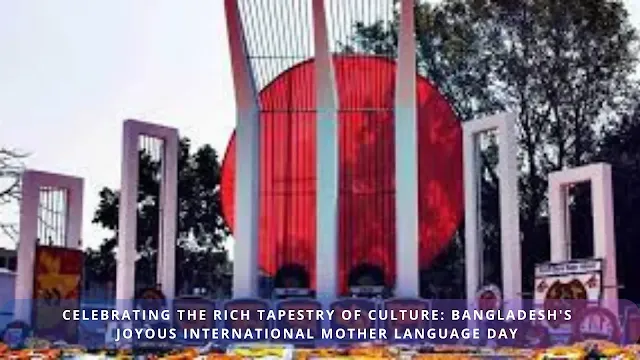Every year on February 21, International Mother Language Day is a deeply significant occasion for Bangladesh, a nation that fervently honors its linguistic diversity and cultural legacy. On this day, linguistic rights are acknowledged and the sacrifices made by language activists to protect their native tongues are remembered. It is an important time for Bangladesh to consider its history, culture, and the enduring spirit that binds its people.
Historical Context:
The origins of International Mother Language Day in Bangladesh can be traced back to 1952, when the people of East Pakistan (now Bangladesh) strongly protested against the imposition of Urdu as the only official language. On February 21, 1952, a brave group of students demonstrated for their right to speak their mother tongue, Bengali. Unfortunately, the protest took a tragic turn when the police opened fire, resulting in the loss of lives, including Rafiq, Salam, Barkat, Jabbar, and Shafiur.
This violent event, known as the Language Movement, became a catalyst for acknowledging linguistic diversity and ultimately played a significant role in the establishment of Bangladesh as an independent nation in 1971. The sacrifice made by the martyrs of the Language Movement is deeply ingrained in the collective memory of Bangladeshis, and International Mother Language Day serves as a poignant reminder of their bravery and resilience.
Acknowledgment from the authorities:
In 1999, International Mother Language Day was formally observed by UNESCO on February 21st in recognition of linguistic diversity and to encourage the use of mother tongues in the preservation of cultural heritage. Since then, Bangladesh has taken the lead in organizing events and activities around the world to raise awareness of the value of linguistic diversity.
Celebrations of Culture:
In Bangladesh, people celebrate International Mother Language Day with cultural events that bring people from different backgrounds together to honor the beauty of their mother tongues. Usually, the day starts with solemn ceremonies at the Shaheed Minar (Martyrs' Monument) honoring the martyrs of the Language Movement. The main ceremony consists of laying flower wreaths at the monument and observing a respectful one-minute silence.
Across the nation, cultural events such as theatrical productions, dance performances, and traditional music are highly anticipated. Educational establishments host talks, panel discussions, and art shows to encourage young people to be aware of language and culture. The lively environment symbolizes the harmony that results from accepting linguistic variety.
Monument to the Language Movement:
The Language Movement's iconic Shaheed Minar towers over the city as a reminder of the people's unwavering spirit. Flowers adorn the monument, and visitors honor it by leaving floral offerings. A striking visual depiction of the sacrifices made for the freedom to speak one's mother tongue is produced by the crimson petals and the somber atmosphere.
Maintaining Linguistic Legacy:
The celebration of International Mother Language Day acts as a catalyst for the preservation of linguistic diversity. Documenting endangered languages, advocating for multilingual education, and cultivating an atmosphere that values and safeguards linguistic diversity are all areas of focus. Bangladesh is still striving to preserve its diverse linguistic heritage for upcoming generations.
In Bangladesh, International Mother Language Day is a moving commemoration of resiliency, individuality, and cultural pride. It's a day to remember those who gave their lives for their country, to appreciate the variety of languages spoken today, and to clear the path for a time when all languages will be respected and kept alive. Bangladesh sends a strong message to the world about the enduring strength that comes from embracing and cherishing one's mother tongue as it unites to celebrate this day.







